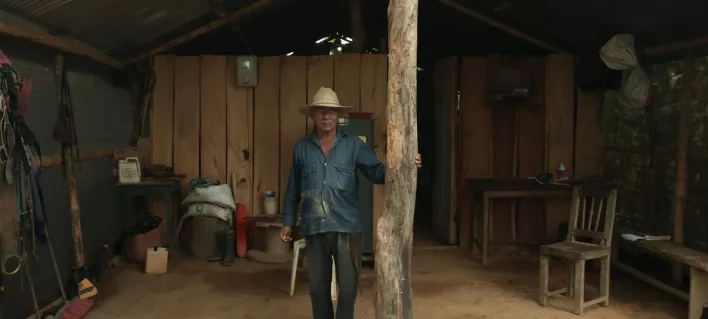Human rights abuses linked to Canadian Oil Companies
Marlinde Weener, a former volunteer with PBI Colombia, recently shared reflections in a post (https://www.linkedin.com/pulse/hoe-canadese-oliemaatschappijen-het-leven-van-marlinde-weener-uaafe/) about her time accompanying rural communities in Casanare. She recalled travelling with journalists through the region, waking up before sunrise, sharing coffee and conversations with campesino families, and hearing both their warmth and their pain. Behind the daily hospitality lay testimonies of fear, environmental destruction, and violence connected to the presence of Canadian oil companies.
Those same stories are part of ExPolio: Canadian Companies in Colombia, a new five-part documentary produced by the Business & Human Rights Resource Centre (BHRRC). The series brings to light the experiences of communities affected by the operations of Frontera Energy and Gran Tierra Energy, companies whose arrival has often gone hand in hand with conflict.
In Casanare, farmers spoke of polluted land and water sources, threatening their ability to live self-sufficiently in areas where state support is already scarce. Others described how they were criminalised or intimidated when they raised concerns or demanded that companies fulfil their environmental obligations. Several testimonies pointed to the involvement of state security forces, allegedly financed by oil companies, in threats and attacks against community members.
A notable moment in the documentary is whenMaría Teresa Rincón, a woman from San Luis de Palenque,survived an armed attack by men she identified as members of the Technical Investigation Corps (CTI), who claimed to be acting on behalf of Frontera Energy. María Teresa still carries the physical scars of that night, a stark reminder of the risks faced by those who speak out against powerful interests.
The documentary also situates these experiences within a broader international context. While Canada is known globally for its human rights and climate commitments, Colombian organisations presented 11 cases of abuse involving Canadian companies during Canada’s 2023 Universal Periodic Review at the UN Human Rights Council. Across Antioquia, Casanare, Chocó, La Guajira, Putumayo, Santander, and Tolima, more than sixty testimonies highlight systemic violations and a lack of corporate accountability.

As Marlinde noted, the tendency to avoid speaking about Colombia’s conflict erases the reality that communities still endure violence today, violence in which international business interests are often entangled. Her reflections serve as a reminder that, in Colombia, economic activity and armed conflict are rarely separate.
The full documentary series ExPolio: Canadian Companies in Colombia can be accessed through the Business & Human Rights Resource Centre here, and the Casanare episode can be viewed on YouTube.
At Peace Brigades International, we stand with Colombian communities and human rights defenders who continue to speak out despite threats and violence, and we call for greater accountability from international actors whose activities put lives, livelihoods, and peace at risk.
